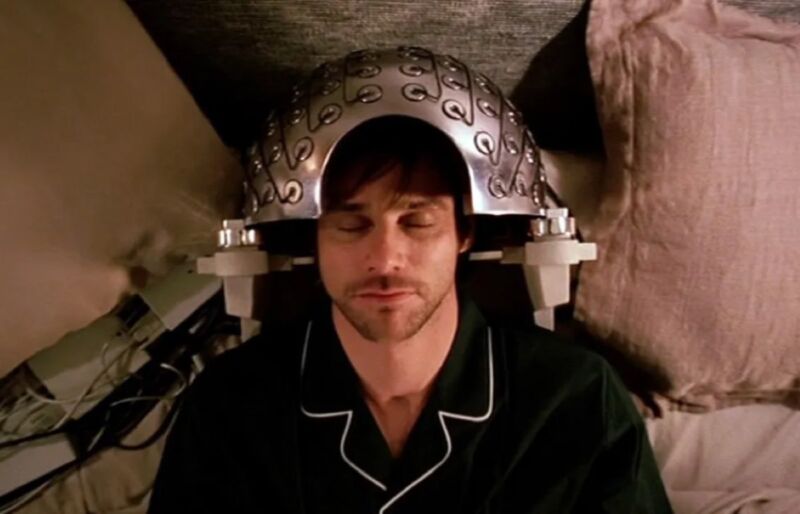
Enlarge / Eternal Sunshine of the Spotless Mind stars Jim Carrey in one of his most powerful dramatic roles. (credit: Focus Features)
Last week, the 2004 cult classic Eternal Sunshine of the Spotless Mind marked its 20th anniversary, prompting many people to revisit the surreal sci-fi psychological drama about two ex-lovers who erase their memories of each other—only to find themselves falling in love all over again. Eternal Sunshine was a box office success and earned almost universal praise upon its release. It's still a critical favorite today and remains one of star Jim Carrey's most powerful and emotionally resonant dramatic roles. What better time for a rewatch and in-depth discussion of the film's themes of memory, personal identity, love, and loss?
(Spoilers for the 2004 film below.)
Director Michel Gondry and co-writer Pierre Bismuth first came up with the concept for the film in 1998, based on a conversation Bismuth had with a female friend who, when he asked, said she would absolutely erase her boyfriend from her memory if she could. They brought on Charlie Kaufman to write the script, and the three men went on to win an Oscar for Best Original Screenplay for their efforts. The title alludes to a 1717 poem by Alexander Pope, "Eloisa to Abelard," based on the tragic love between medieval philosopher Peter Abelard and Héloïse d'Argenteuil and their differing perspectives on what happened between them when they exchanged letters later in life. These are the most relevant lines: